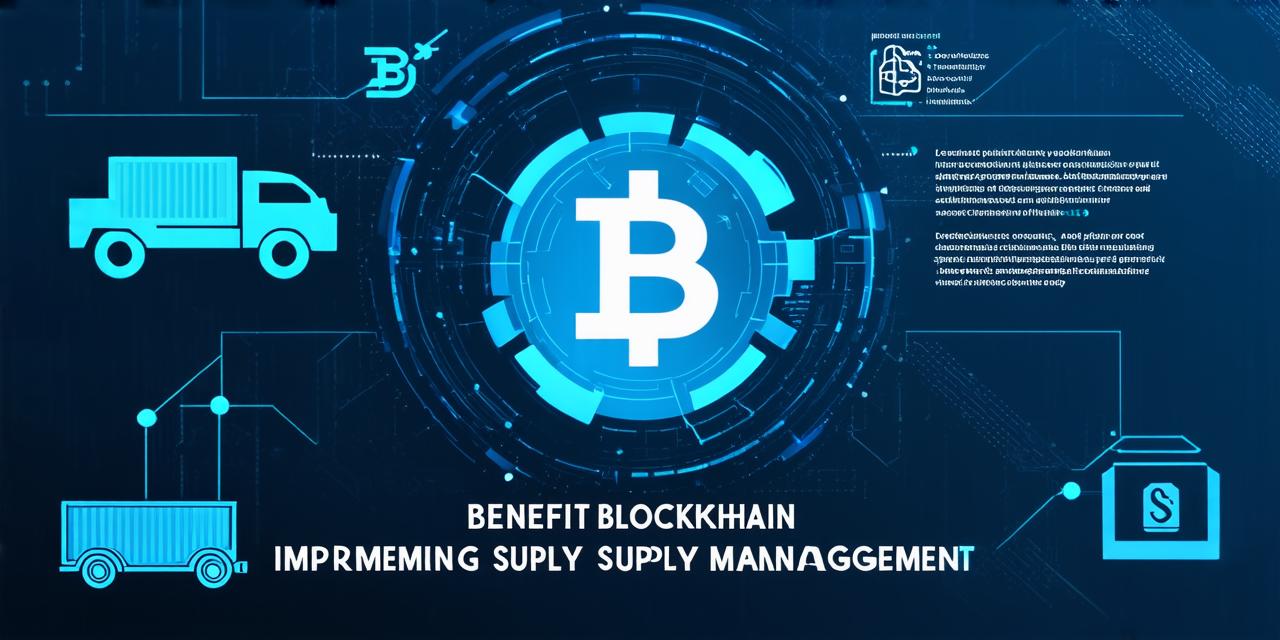Introduction:
Blockchain technology has been revolutionizing various industries and sectors, including supply chain management. Blockchain is essentially a decentralized and secure database that records transactions across multiple computers in a network. This technology has the potential to streamline supply chain processes, increase transparency, and reduce costs. In this article, we will explore how blockchain can be implemented in supply chain management, its benefits, challenges, and case studies.
1. Understanding Blockchain Technology:
Before we delve into the implementation of blockchain in supply chain management, it’s essential to understand the fundamental principles of this technology. Blockchain is a distributed ledger that maintains a continuously growing list of records, called blocks, which are linked and secured using cryptography. Each block contains a timestamp and a cryptographic hash of the previous block, making it challenging to alter or tamper with the data.
2. Benefits of Implementing Blockchain in Supply Chain Management:
Blockchain technology has several benefits for supply chain management, including:
- Increased transparency: Blockchain provides a tamper-proof record of all transactions, making it easier to track shipments, trace products, and verify their authenticity. This increased transparency can help reduce fraud and counterfeiting.
- Improved efficiency: Blockchain enables faster and more secure transaction processing, reducing the time required for clearance, payment, and delivery. This, in turn, can lead to shorter lead times and improved customer satisfaction.
- Enhanced traceability: Blockchain technology allows for real-time tracking of products throughout the supply chain, providing better visibility into the entire process. This enhanced traceability can help identify bottlenecks and improve product quality control.
- Reduced costs: By automating various processes and eliminating intermediaries, blockchain can significantly reduce transaction costs, including logistics, transportation, and customs clearance fees.

3. Challenges of Implementing Blockchain in Supply Chain Management:
While blockchain technology has several benefits for supply chain management, it also presents some challenges, including:
- Regulatory hurdles: The legal framework surrounding blockchain is still evolving, and there are concerns around data privacy, intellectual property, and liability. It’s essential to have a clear understanding of the regulatory environment before implementing blockchain in supply chain management.
- Technical complexity: Blockchain technology can be complex, requiring specialized skills and resources for development and maintenance. It’s crucial to have a robust technical infrastructure and skilled personnel to support blockchain implementation.
- Interoperability issues: Blockchain systems are often siloed, making it challenging to integrate them with existing supply chain systems. Standardization is essential to ensure seamless interoperability between different blockchain networks.
4. Case Studies of Blockchain in Supply Chain Management:
Several companies have successfully implemented blockchain technology in their supply chains, achieving significant benefits. Here are some case studies:
- Walmart’s Food Traceability Initiative: Walmart partnered with IBM to implement a blockchain-based system for tracking food products throughout the supply chain. This system provides real-time visibility into product movements and helps identify potential contamination sources, reducing the risk of foodborne illnesses.
- Provenance by IBM: Provenance is a blockchain-based platform that enables companies to track products from source to destination, ensuring transparency and traceability throughout the supply chain. Provenance has been used in various industries, including fashion, pharmaceuticals, and automotive, achieving significant cost savings and improved customer satisfaction.
- Maersk’s TradeLens Platform: Maersk’s TradeLens platform is a blockchain-based solution that enables seamless sharing of logistics data between different stakeholders in the supply chain. This platform has reduced customs clearance times by up to 80%, leading to significant cost savings for Maersk and its customers.
5. FAQs:
Q: How does blockchain technology improve supply chain management?
A: Blockchain technology enables faster and more secure transaction processing, reduces transaction costs, provides enhanced traceability, and increases transparency throughout the supply chain process.
